Bitumen Use and Applications In Different Industries
Did you know that if the roofs of our homes are not properly insulated, they can allow heat and moisture to pass through? What about our streets? If the road workers don’t asphalt them properly, the bumps can ruin your car! In all these cases, applying high-quality, premium-grade bitumen can solve many problems. Bitumen is a substance that manufacturers produce by distilling crude oil in refineries and has numerous applications. But what exactly are the uses of bitumen in different industries? Bitumen has uses in various industries. For example, bitumen is useful in road construction, papermaking, insulation, paint production, construction, oil and gas, wastewater systems, electrical insulation, and marine constructions. Therefore, if you wish to know more about bitumen uses, we will explain them in this article from Iran ETrade.
Definition of Bitumen
Bitumen is a black, sticky substance that exists in nature. It can also be produced by humans through industrial processes at refineries.
Typically, the bitumen you see used in various industries like road construction, insulation, and others is synthetic and man-made.
(Click to learn about Types of Bitumen in Road Construction.)
Bitumen has many properties that make it useful across various industries.
Some of these features include bitumen’s ability to bond different materials together, its waterproof nature, and forming a seamless and impermeable layer.
As a result, bitumen uses are varied in a diverse range of industries. But what exactly are these uses?
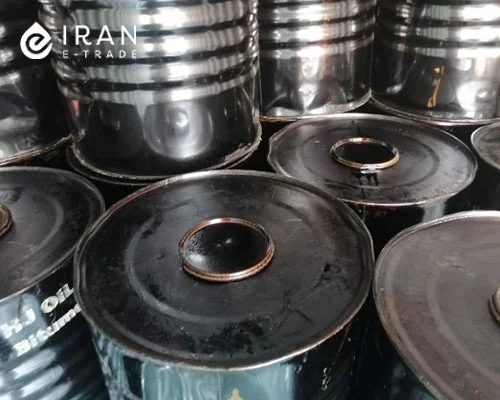
Various Bitumen Uses in Different Industries
As we mentioned, there are many uses of bitumen in different industries.
You may be most familiar with bitumen uses in road construction and insulation, but its applications go beyond these industries.
In this section, we will explain more about these broader uses.
(Click to learn about Types of Construction Bitumen.)
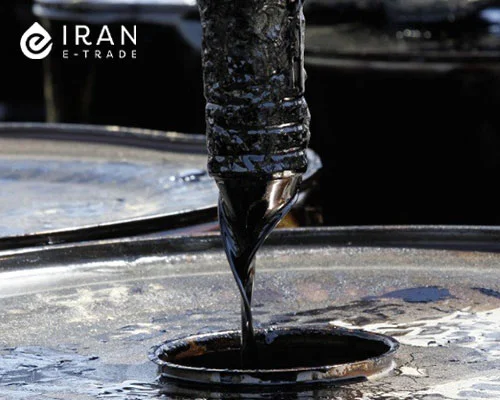
1- Uses of Bitumen in the Road Construction Industry
The use of bitumen in road construction is extremely important because if the bitumen is of poor quality, the road surface cannot withstand different weather conditions and heavy traffic loads.
Naturally, one of the most common bitumen uses is in the road construction industry.
Due to its adhesive properties, bitumen can bond various asphalt materials together. Additionally, because of its waterproof nature, bitumen can create a smooth, uniform surface for vehicles.
Road builders typically use bitumen in some important ways, such as producing asphalt and road repair. But how exactly do road engineers use bitumen to produce asphalt?

Uses of Bitumen in Asphalt
Road engineers use the adhesive and waterproof properties of bitumen to produce road asphalt. In such cases, they utilize various types of bitumen, such as bitumen emulsion, penetration bitumen, blown bitumen, and others.
Additionally, they employ different methods to apply asphalt on roads. The main bitumen uses in the asphalt industry include:
- Hot Rolled Asphalt: Engineers heat bitumen to a high temperature and mix it with aggregate mixture to create hot asphalt. In this case, the use of cutback bitumen is suitable.
- Stone Mastic Asphalt: One use of bitumen in asphalt is to produce stone mastic asphalt, known for its durability and resistance to deformation due to its unique composition.
- Open-Graded Asphalt: Another use of bitumen is producing open-graded asphalt, which has a porous structure allowing water to pass through it. Road builders often use this type of asphalt in wet climates to reduce the risk of vehicle skidding.
- Tack Coat: Sometimes, road engineers use a tack coat to bond the old layer of roads to the new asphalt layer. In this application, bitumen acts as an adhesive, ensuring the new asphalt layers adhere to the older ones.
- Spray Foam Insulation: Spray foam is another bitumen application in asphalt, where engineers spray the asphalt on the road surface.
- Slurry Seal: Slurry seal is another method of applying bitumen in asphalt. In this method, engineers apply a mixture of bitumen, aggregates, and water onto the road surfaces to protect it from impacts and cracks. In this method, MC bitumen is suitable

Bitumen Application in Road Repair
Most of the bitumen uses in road construction that we discussed earlier focus on building new roads. However, another important application of bitumen in asphalt is road repair and restoration.
Over time, roads develop cracks and fractures. In such cases, road engineers can use a prime coat and chip seal bitumen to fill them.
Additionally, this use of bitumen in asphalt can add a new layer to the road, enhancing its durability, lifespan, and flexibility.
(Click to learn about The Prime Coat And Tack Coat Difference.)

2- Use of Bitumen in the Papermaking Industry
The bitumen use in the papermaking industry is not what you might think it is. In fact, there is a product called bitumen paper, but it is different from A4 paper or the papers we use daily.
The primary use of bitumen in the papermaking industry is the production of coarse fibre and kraft paper, which are suitable for packaging and carton manufacturing.
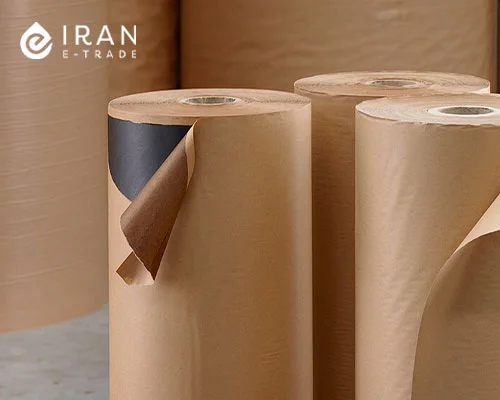
3- Use of Bitumen in Insulation Industries (Waterproofing for Commercial and Residential Buildings)
One of the key properties of bitumen is its waterproof nature, which is why construction workers can leverage this feature for its application in insulation industries.
By using bitumen in insulation, they can create protective layers for roofs, shielding them from environmental factors like water and moisture. These bitumen uses are varied and include:
- Insulation for buildings: Construction workers use slow-setting bitumen and its waterproof properties to insulate buildings, protecting them from moisture and heat.
- Waterproofing: One of bitumen’s primary characteristics is its water resistance. This feature, combined with bitumen’s ability to form an impermeable layer, makes it ideal for producing waterproof insulations to guard against moisture and water.
- Pipe and Tank Insulation: To extend the lifespan of pipes and tanks, and protect them from factors like moisture, water, and environmental conditions, manufacturers can coat the inside and outside of these structures with a layer of bitumen. Therefore, bitumen application in insulation industries can help protect pipes and tanks.
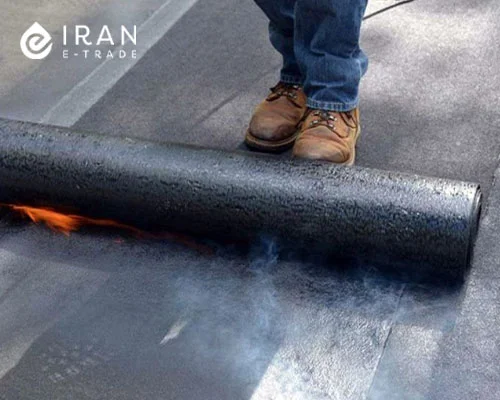
4- Bitumen Application in the Paint Industry
In the construction industry, construction workers can use bitumen in the paint industry to create protective and insulating layers.
These are specialized paints made by using bitumen. As a result, one of the bitumen uses is to protect both the interior and exterior of buildings from moisture and water.
Additionally, they can use bitumen-based paints to protect metal structures from corrosion and environmental factors.

5- Use of Bitumen in the Construction Industry
As mentioned before, bitumen uses are diverse in the construction industry due to its waterproof properties.
Construction engineers can use bitumen in various aspects of building construction, which include:
- Flooring: Builders use RC bitumen to create waterproof membranes and apply a protective layer over the building floors.
- Rooftops: To prevent roofs from allowing moisture and water to pass through, builders use bitumen to create waterproof and moisture-resistant layers on rooftops.
- Roofs, Walls, and Facades: Bitumen is also suitable for protecting roofs, walls, and building facades from water, moisture, and environmental elements.
- Other Construction Applications: Beyond its application in roofs, flooring, walls, and ceilings, bitumen is also used to bond construction materials. Additionally, if a building has a parking lot, builders can use bitumen to create a protective surface for it as well.
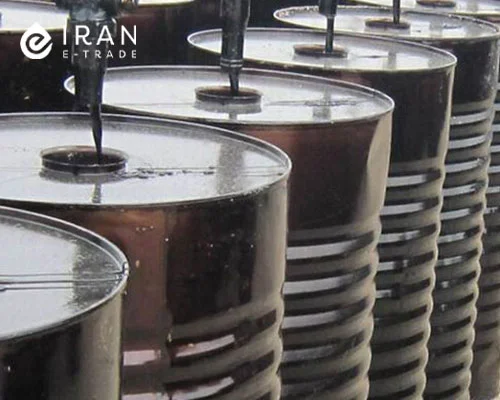
6- Application of Bitumen in the Oil and Gas Industry
One use of bitumen in the oil and gas industry, particularly tar, is in the production of fluids used in oil drilling. These fluids help make the drilling process smoother and more efficient.
The bitumen use in the oil and gas industry is varied. For example, industry professionals use Gilsonite bitumen to apply a protective layer inside their storage tanks.
This protective layer helps preserve the tanks against corrosive chemical agents.
Additionally, another application of Gilsonite in the oil and gas industry is to create protective coatings for extraction pipes, safeguarding them from wear and corrosion.

7- Use of Bitumen in the Water and Wastewater
The bitumen use in water and wastewater systems is primarily due to its waterproof and moisture-resistant properties.
Since water and wastewater pipes and tanks are constantly exposed to moisture, manufacturers apply a bitumen layer to both the interior and exterior of the pipes.
This protective layer shields the pipes and tanks from moisture and water-induced corrosion.
Therefore, the primary use of bitumen in water and wastewater is as a moisture-proof insulating material.
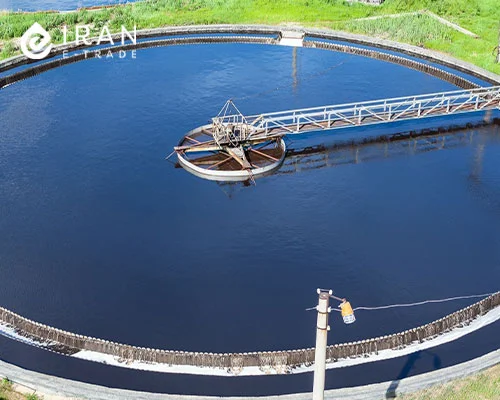
8- Application of Bitumen in the Electrical Insulations
The electrical cables we use daily have protective layers, which are essential for shielding the wires inside from environmental factors like moisture and water.
What better material than bitumen to apply as a protective layer for electrical cables, especially in environments where the cables are exposed to chemicals and elements like moisture?
The bitumen in the electrical insulation helps protect cables in such conditions.
Therefore, the main bitumen use in electrical insulation is to safeguard electrical cables from moisture and other harmful factors.
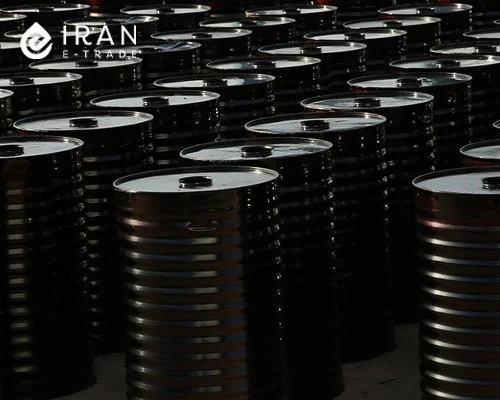
9- Bitumen Use in the Marine Constructions
The marine constructions include sea channels, underwater tunnels, ports, and dams.
As a result, those working in this sector must ensure that sea channels and underwater tunnels, which are constantly exposed to water, maintain their integrity against the erosive forces of water.
In this regard, industry professionals use bitumen in marine constructions to apply protective layers to them.
Therefore, the main bitumen use in marine constructions is its waterproofing property, which protects marine structures from water damage.
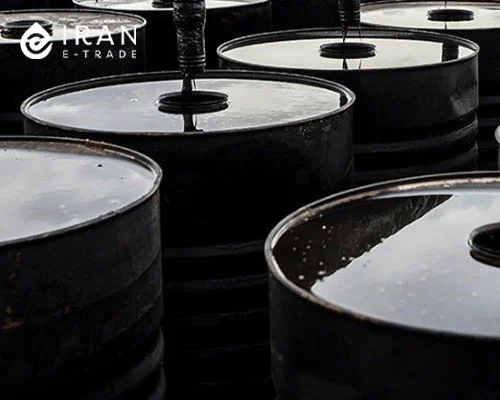
Get The Latest Bitumen Prices with Iran E-Trade
As we explained in this article, bitumen has numerous applications across various industries.
With its unique properties and features, bitumen can serve many industrial purposes, making it a high-demand material.
Therefore, if you are a bitumen trader and want to know more about bitumen prices, mineral bitumen uses, or the uses of Pasargad bitumen, we recommend that you visit the Iran ETrade website.
Our goal is to simplify the process of bitumen trading and transactions. As a result, we have provided our visitors with the ability to access real-time bitumen prices.
So, if you’re interested in learning about bitumen pricing, you can contact our experts at Iran ETrade.
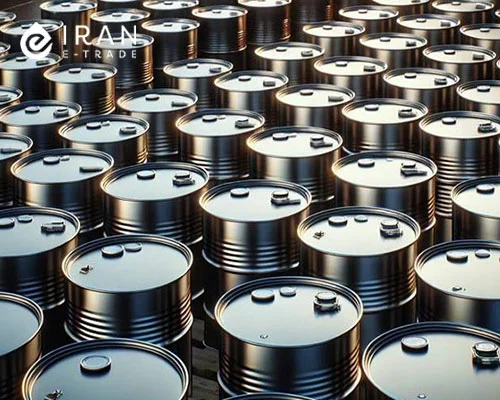
- Petroleum Products and Petroleum Derivatives: Introduction + Uses
- Oil Refineries in Iran: Complete List + Comparison
- Gasoline Producing Refineries in Iran: 12 Major Refineries
- Largest Oil Producers in the World: The Top 13 Countries...
- The Largest Bitumen Refineries In The World: Top 20 Refineries...
- What Is An Oil Lubricant: Types, Applications + Production









